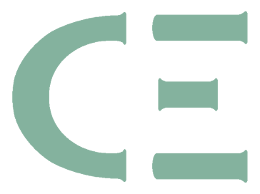Automatic Control
Automatic Control
What is Automatic Control?
The goal of automatic control is to automatically influence the behavior of dynamical systems. For this purpose, the system at hand (e.g. an electric drive) is complemented with a closed-loop controller, which automatically generates an actuator signal such that a desired temporal behavior is obtained even in the presence of disturbances (e.g. a constant rotational speed despite a changing load).
For this purpose, the system at hand (e.g. an electric drive) is complemented with a closed-loop controller, which automatically generates an actuator signal such that a desired temporal behavior is obtained even in the presence of disturbances (e.g. a constant rotational speed despite a changing load).
Automatic control is interdisciplinary and of fundamental importance in a wide variety of fields such as mechatronics, medical engineering, robotics, mobility or automation in general. The concepts of automatic control theory are based on mathematical methods that are equally applicable to systems and processes of different domains (electrical, mechanical, hydraulic, information processing, etc.).
Mathematical and physical understanding as well as profound knowledge in computer science are important when designing and realizing automatic control methods. For instance, the system to be controlled is modeled and simulated, sensor data is processed and the controller is implemented on the computer or real-time hardware. In addition, the use of machine learning methods in modelling and control represents a new field of research.
Automatic control can thus ideally complement the fundamentals from the fields of mathematics, physics, and computer science in the computational engineering program. The modules taught in the Bachelor’s program (see below) also serve as the basis for advanced lectures in the field of automatic control on Master level.
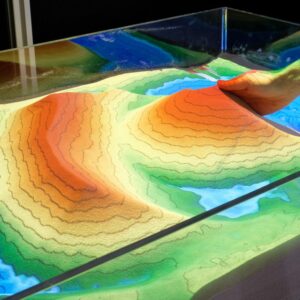 |
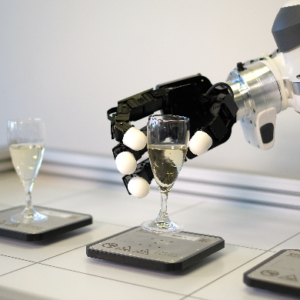 |
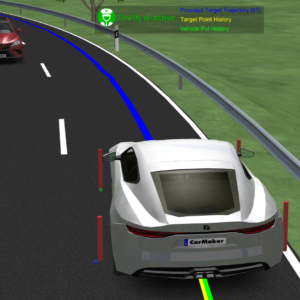 |
What are the research topics in automatic control?
Research in the field of automatic control is concerned with the methodological development of automatic control techniques also at the interface to machine learning and artificial intelligence. Besides that a focus of automatic control is always the practical realization in various application areas, including cooperation with industry in the automotive sector, robotics and automation technology.
Research areas e.g. also for bachelor and master theses are:
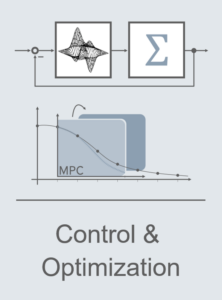 |
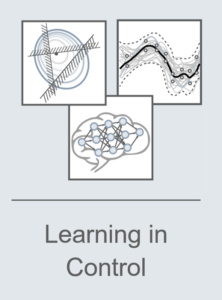 |
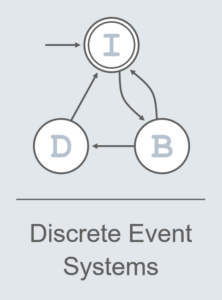 |
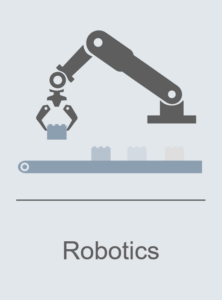 |
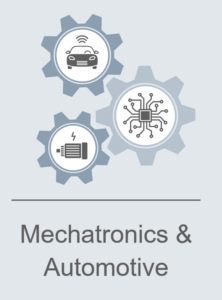 |
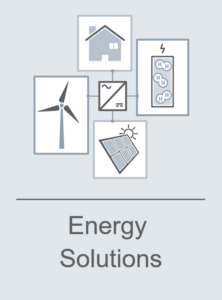 |
What are the contents of the Bachelor’s program?
- Einführung in die Regelungstechnik (Introduction to Automatic Control) or
Dynamical Systems and Control
The lecture teaches the basics of automatic control. Contents include linear time-invariant single-input systems in the frequency and time domains, the standard control loop, and various controller design methods. - Regelungstechnik B (Automatic Control B (State Space Methods))
The lecture covers the fundamentals of describing and analyzing linear multi-input systems in state space as well as the corresponding controller and observer design. - Regelungstechnisches Praktikum (Practical course in Automatic Control)
In the practical course, the students apply the basic methods of control engineering in simulations and to various experimental setups. - Digitale Regelung (Digital Control)
The lecture teaches the basics of implementing a controller on a computer. The real system is described in discrete time and DA/AD converters (digital/analog) are used to transfer the sensor data to the computer and the signals to the real system. In addition, discrete-time controllers both in time and frequency domain are designed.
Which advanced courses are offered?
- Machine Learning for Control Systems
- Mechatronic Components and Systems
- Nonlinear Control Systems
- Numerical Optimization and Model Predictive Control
- Praktikum Regelungstechnik II
- Projekt / Seminar Mobile Robotics
- Robotics 1 & 2
- Schätzverfahren in der Regelungstechnik
For further information, please visit the homepage of the chair: https://www.ac.tf.fau.eu/.
TAF Adviser
Prof. Dr. Knut Graichen
Department Elektrotechnik-Elektronik-Informationstechnik (EEI)
Lehrstuhl für Regelungstechnik
- Phone number: +49 9131 85-27127
- Email: knut.graichen@fau.de
